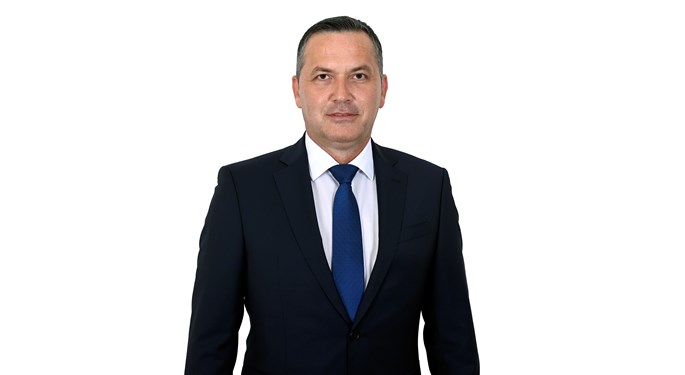Kustić’s career has been rooted in football since its beginnings – as a football player, he successfully played for Novalja in Croatia’s second and third division, and he continued to lead the club as its general manager after ending his playing career.
He developed his football executive career on a regional level as president of the County Football Federation of Lika-Senj, as well as president of the Inter-county Football Board of the Rijeka Football Center. The HNS Assembly elected him to the HNS Executive Committee in 2014, and he went on to serve as the FA’s vice-president.
From January 2018, he served as the director of competitions and infrastructure at HNS. During his tenure, the Croatian Football Federation completed its biggest infrastructure project to date – the renovation of pitches at five first-division clubs.
The HNS Executive Committee named Kustić the executive director of HNS at their meeting on March 28, 2019. Kustić’s term officially began on April 21, 2019. After taking on his new role in HNS, Kustić renounced his position in the 9th Assembly of the Croatian Parliament, of which he had been a member since June 2017.
HNS General Assembly unanimously elected Kustić as the new president of the Croatian Football Federation on 29 July 2021, after his nomination was supported by all county football associations. Under his leadership, the Croatian Football Federation has had multiple noted successes both on and off the pitch. The Croatian men’s senior national team won the bronze medal at the 2022 FIFA World Cup in Qatar and silver medal at the UEFA Nations League in 2023, while the Croatian FA’s excellent results made it possible for the HNS to invest additional funding into football development. The Croatian FA’s investments into football infrastructure across the country are among the most notable of the HNS’s investment projects, while the signing of a record-breaking broadcasting rights contract helped HNS secure additional funding for clubs.
On February 3, 2025, at the election session of the HNS Assembly, Kustić received a new presidential mandate with unanimous support.
At the 49th Congress of European football’s governing body, held in Belgrade on April 3, 2025, Kustić was elected to the UEFA Executive Committee. He was elected in the first round with 42 votes from UEFA member associations and is currently serving a four-year term.
Kustić received a bacc. oec. degree from the Effectus University College in 2019, and in 2022 he successfully received a Master of Business Administration (MBA) degree.
Kustić has been awarded the Order of the Croatian Morning Star with the face of Franjo Bučar by the President of the Republic of Croatia Kolinda Grabar-Kitarović for his contribution to the success of the Croatian national football team at the FIFA World Cup in Russia, where the team earned a silver medal. In May 2024, Kustić received the Charter of the Republic of Croatia for the exceptional success of the Croatian national football team, the promotion of sport and the international reputation of the Republic of Croatia, and winning bronze medal at the 22nd FIFA World Cup in Qatar in 2022.

